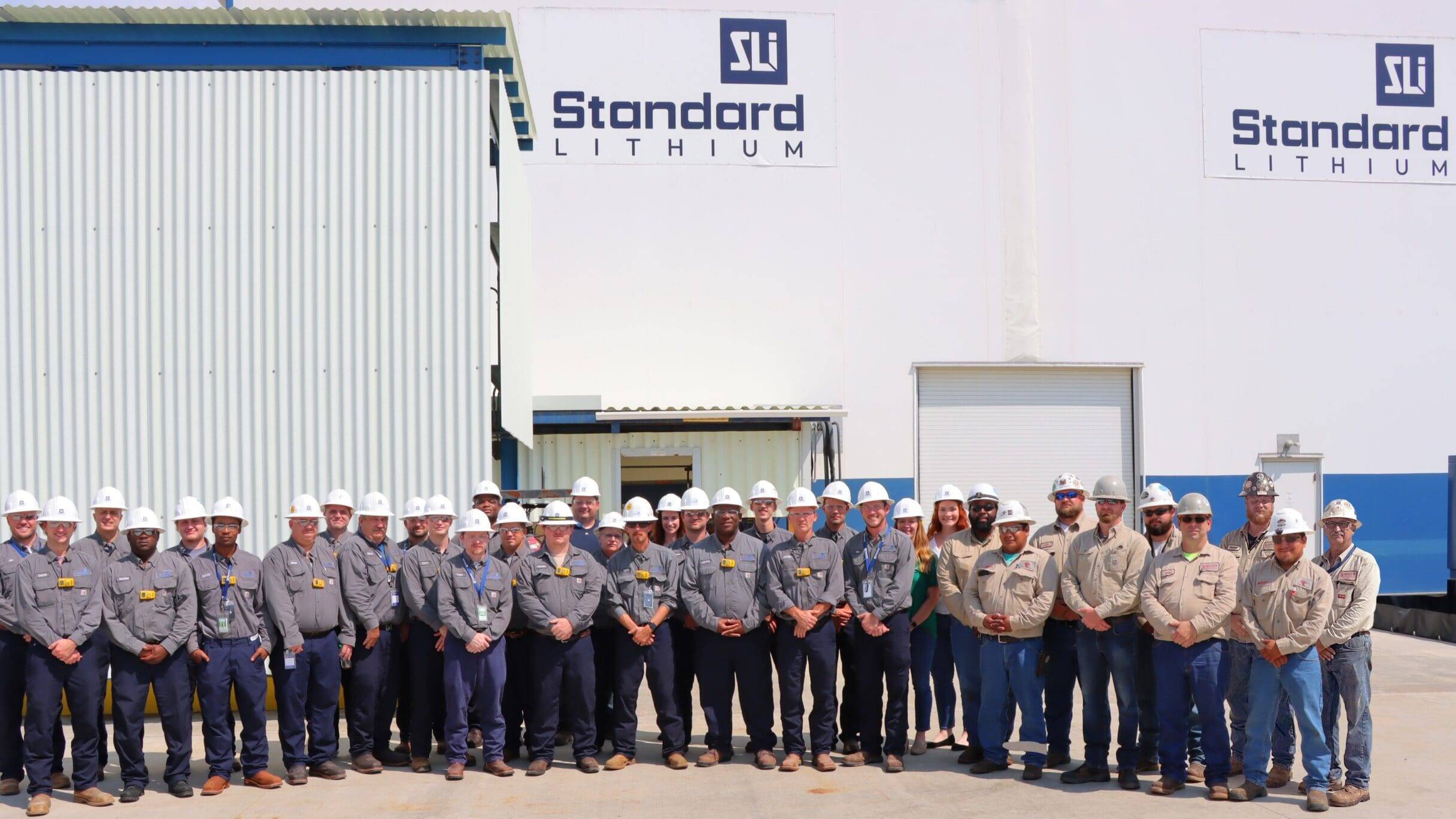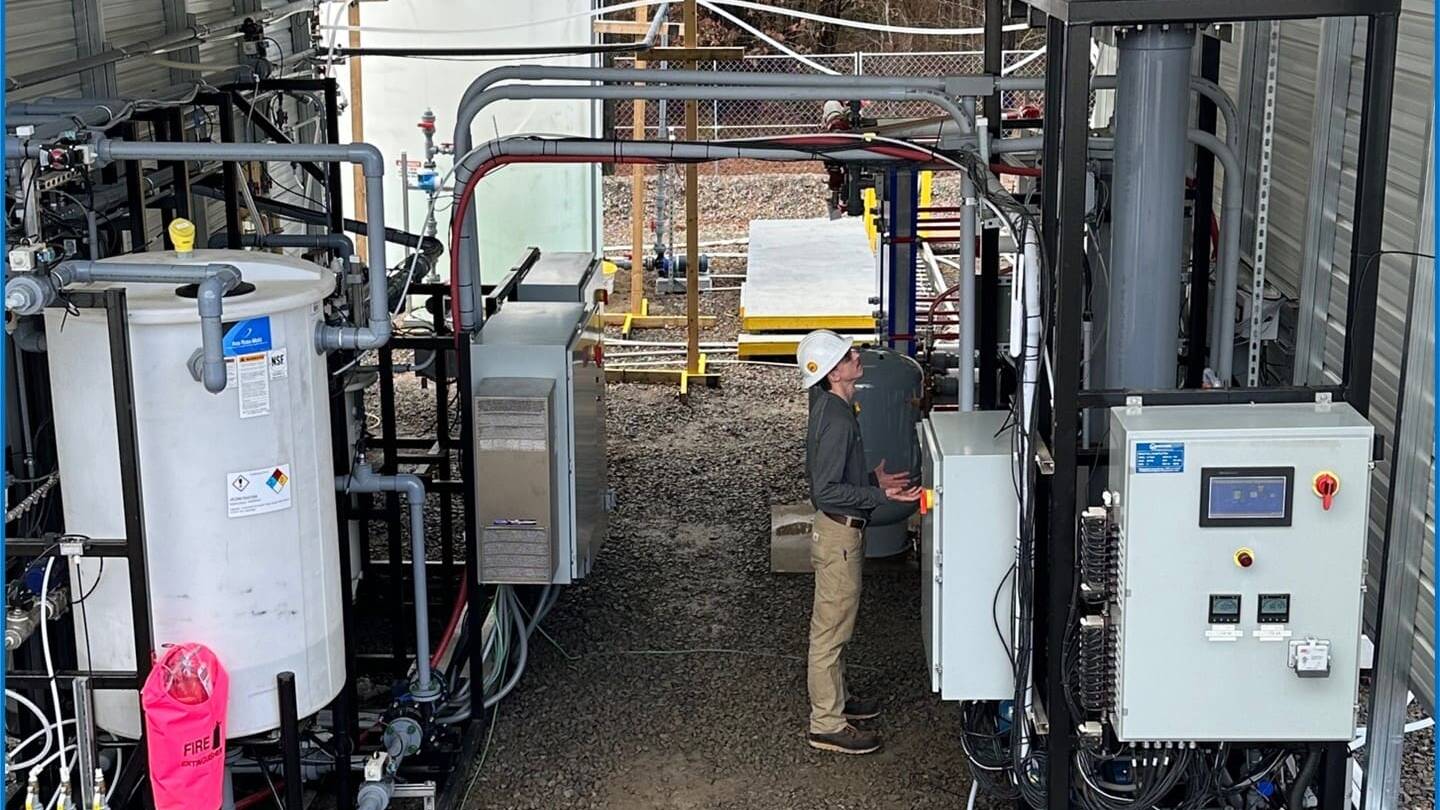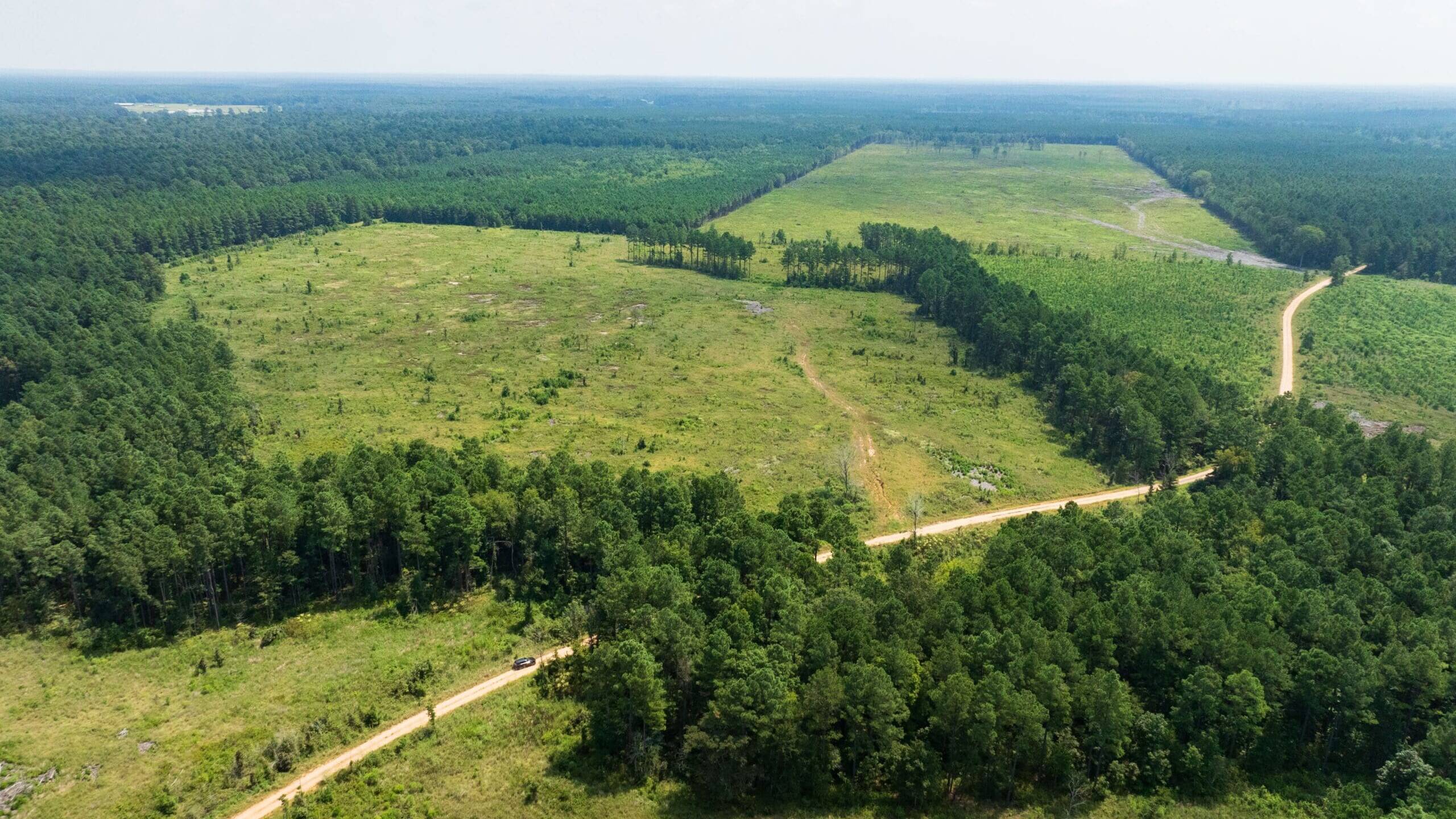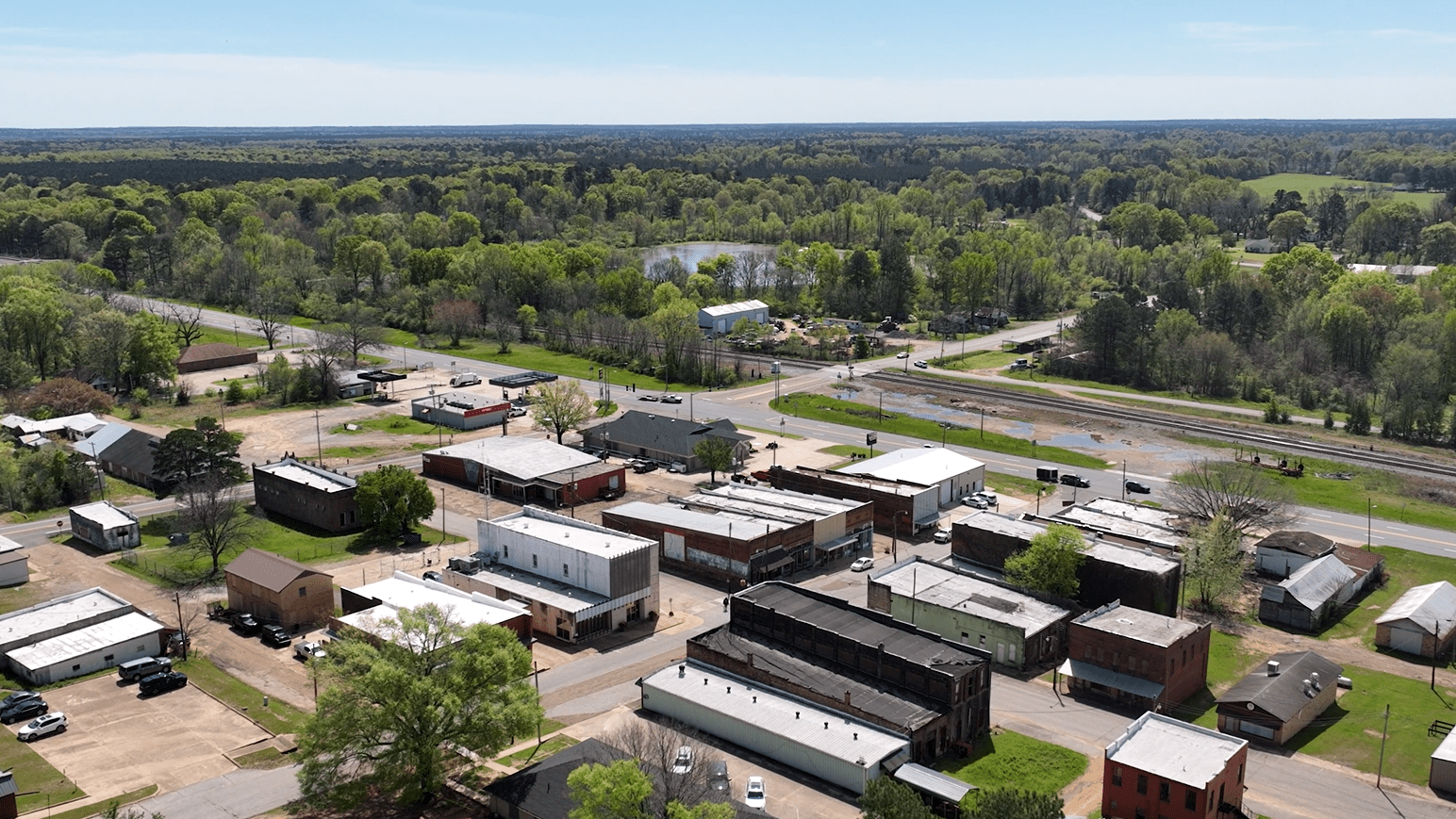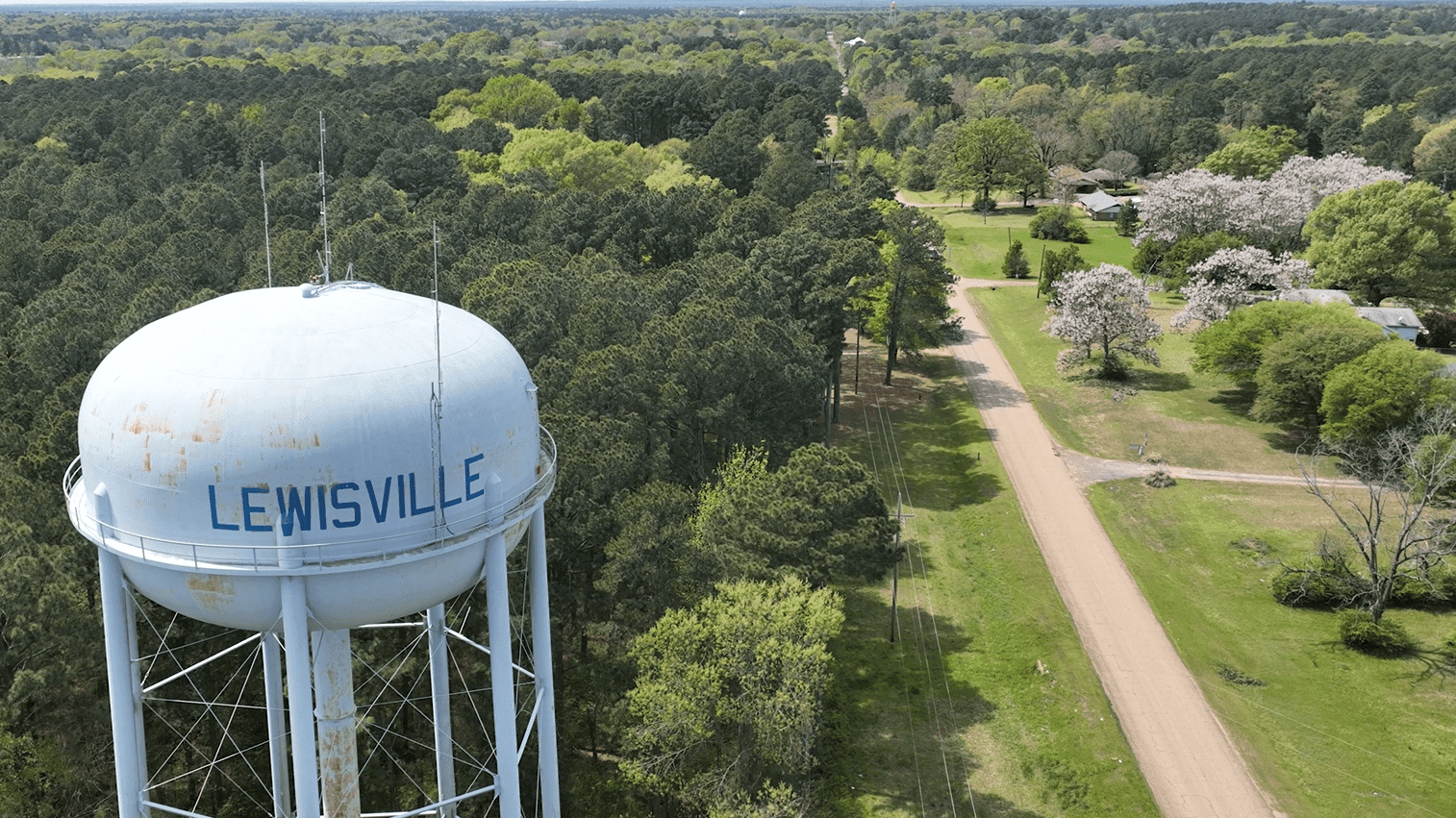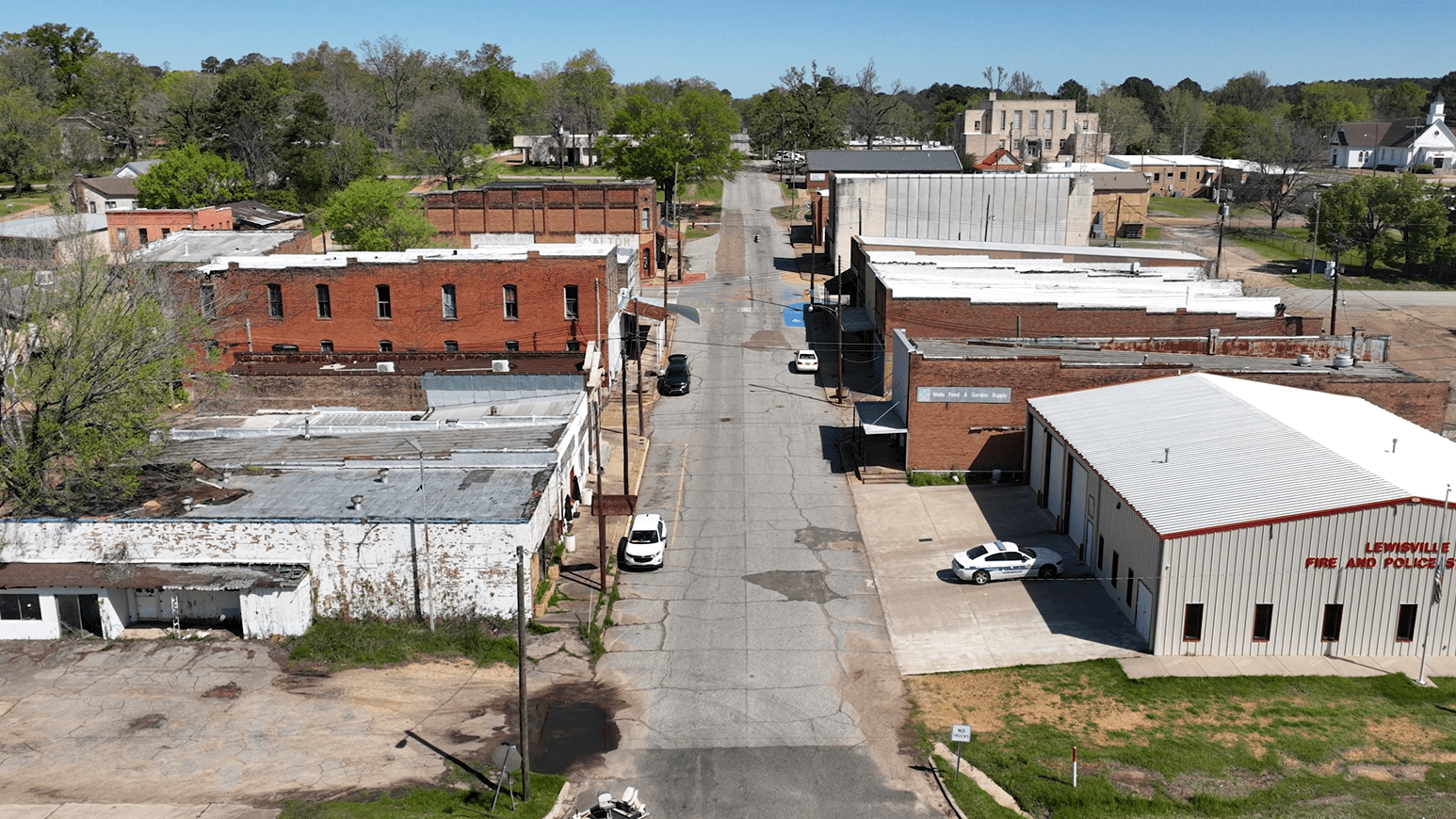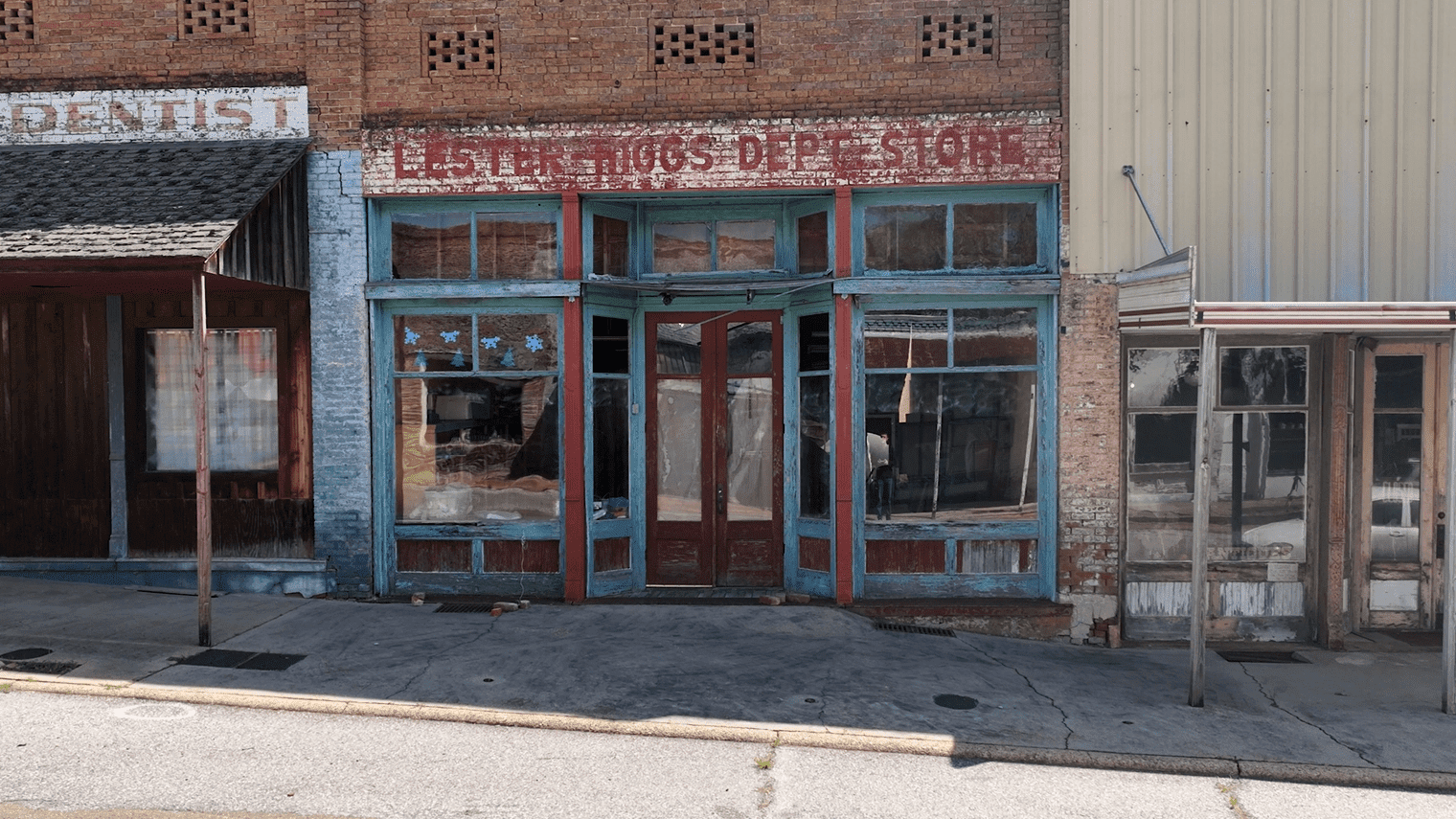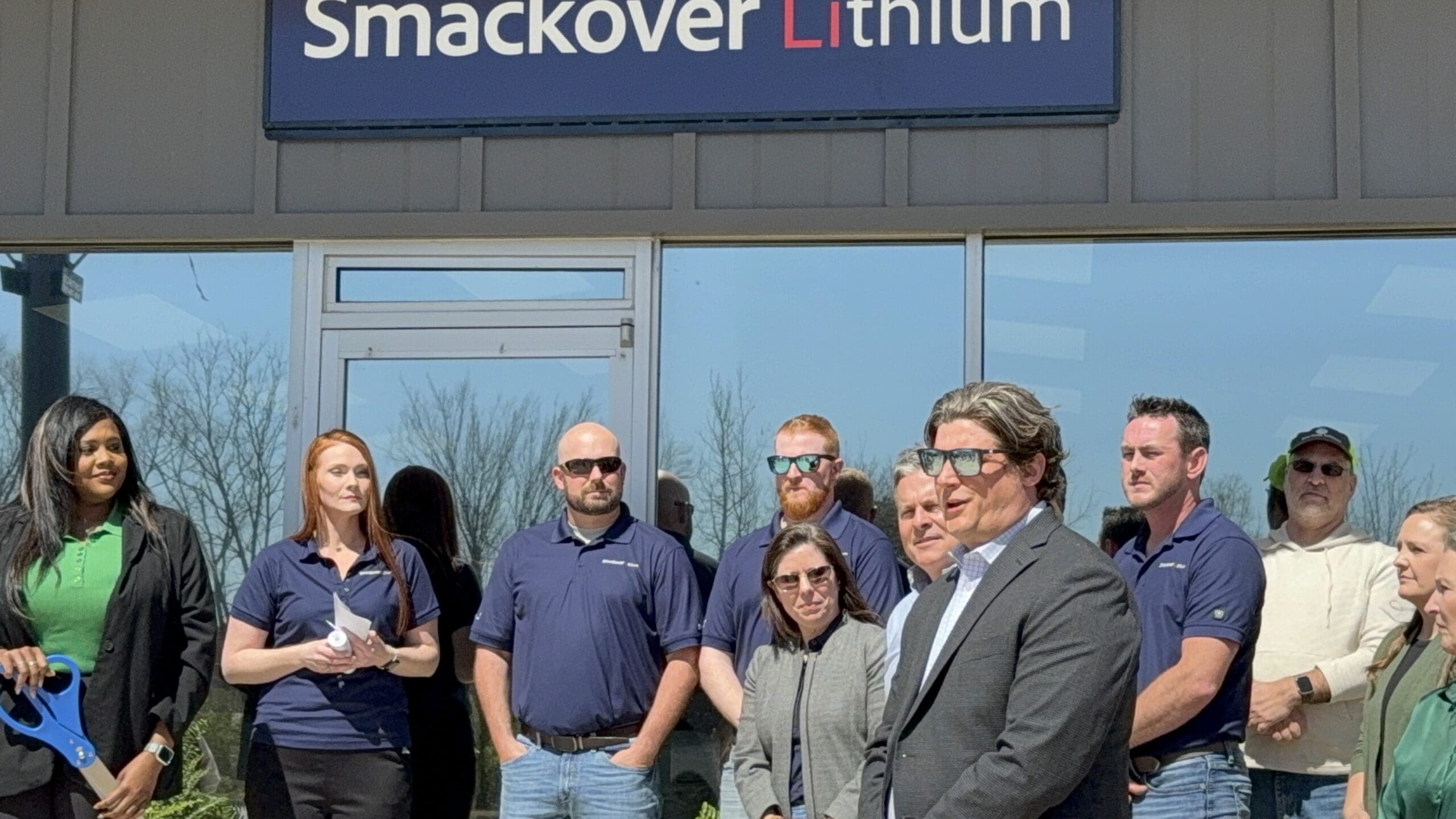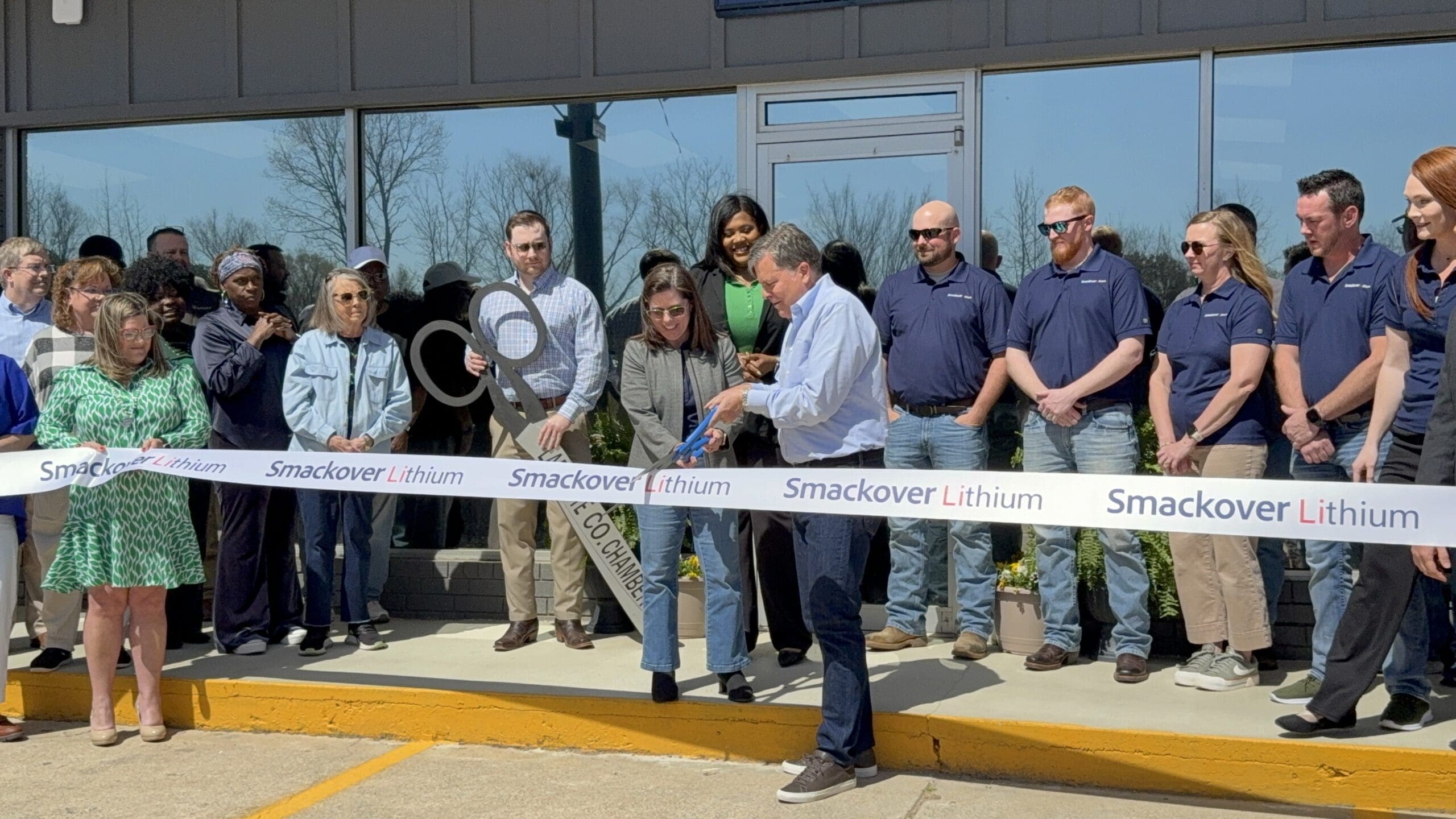A modest building off Highway 82 in a rural South Arkansas community may not look like the front door to the future — but that’s exactly what it has become.
Smackover Lithium — a joint venture between Standard Lithium and global energy company Equinor — officially opened its new field office in Lewisville, Arkansas, located in Lafayette County in mid-March 2025. Just miles from the site of its $1.5 billion South West Arkansas (SWA) lithium extraction project, the opening marks a pivotal moment for this rural town — and for American energy independence.
“A couple of reasons,” said Jesse Edmondson, Director of Government Relations at Standard Lithium, when asked why the company chose Lewisville. “We want to have essentially a storefront in the community, close to our project, where we can be available for questions and concerns from our neighbors. It’s also strategic for supporting the project’s growth as we move toward construction next year and, eventually, commercialization.”
Fueled by a $225 million grant from the U.S. Department of Energy, the SWA Project will be among the first commercial-scale Direct Lithium Extraction (DLE) facilities in the country. Once complete, the facility is expected to create more than 100 permanent jobs and several hundred construction jobs, positioning Lafayette County as a national anchor in the shift toward domestic energy security and electrification.
“The larger benefits come from job creation, tax revenue, and opportunities for local businesses,” Edmondson said. “We’re focused on hiring local and regional talent, but we’ll also have people coming from outside who’ll spend money in local restaurants and stores.”
Entry-level roles — such as equipment operators, welders, electricians, plumbers, and other hands-on trades — will start at more than $30 an hour, a wage that could be life-changing in a county where the average household income hovers around $40,000.
But Smackover Lithium’s commitment goes beyond wages and jobs. The company is actively working with local officials, schools, and organizations to support infrastructure, health initiatives, and food access. Edmondson acknowledged the importance of preserving the community’s character, sharing that residents have expressed a desire for growth that doesn’t come at the expense of identity.
“Lewisville wants to grow, but they still want to maintain that small-town charm,” he said. “We respect that and are working to uplift the community — not burden it.”
But the significance of this transformation goes far deeper than the surface. Lewisville sits atop the Smackover Formation — a vast, porous limestone aquifer rich in lithium-containing brine. This formation, which stretches from northeast Texas to the Gulf Coast of Florida, has a storied history in oil and bromine production. Now, it’s being hailed as one of the richest lithium brine deposits in North America.
Recent estimates from the U.S. Geological Survey (USGS) suggest the Smackover Formation may hold enough lithium to meet projected global demand for electric vehicle batteries through 2030 — potentially powering more than 400 million EVs, nearly every gas-powered car on U.S. roads today. Smackover Lithium’s leases may contain one of the highest-grade lithium brine resources in North America.
“We’ve been active in the Smackover region since late 2017,” Edmondson said. “We based our strategy on historical reports, so this wasn’t our discovery, but we’ve done a lot of work to better understand the subsurface geology.”
“What we’ve found is that the resource tends to improve as you move west,” he added. “That said, it’s not uniform. There are subsurface structures and faults that complicate things, so we’ve put a lot of effort into identifying the best locations — which is how we ended up with our land position.”
Smackover Lithium’s SWA Project in Lafayette and Columbia counties is expected to begin construction in 2026 and start producing battery-grade lithium carbonate by 2027. ExxonMobil has also opened a nearby test site, with plans to produce lithium for up to one million EV batteries annually by 2030.
According to Edmondson, lithium is a critical mineral essential to both national security and the energy transition. The U.S. push to secure domestic supplies began with President Trump’s 2017 executive order, continued under President Biden, and now carries forward into Trump’s second term. With rising demand for electric vehicles and solar energy, domestic mining has become increasingly important. Edmondson highlights Arkansas’s Smackover Formation as a strategic solution to meeting this growing need.
“That’s why Arkansas — and the Smackover Formation in particular — stands out,” Edmondson said. “When it comes to direct lithium extraction technology, it checks all the boxes. These are capital-intensive projects to build, but once in production, they can compete with China on cost. They’re solid projects with strong economic fundamentals and some of the lowest environmental footprints in the global lithium industry. And Arkansas is a place where projects like this can truly take root. It offers the right resource, the right location, and the ability to make a real impact — something that resonates across both sides of the aisle.”
While the grand opening of Smackover Lithium’s field office marks a turning point for the lithium industry, it also reflects something deeper — the power of preparation.
For years, the people of Lewisville have been laying the groundwork for growth — not just in infrastructure, but in leadership and long-term planning. Communities Unlimited (CU) has remained a key partner through every phase of that transformation, working to ensure that the benefits of this boom reach the people who call Lewisville home.
CU’s relationship with Lewisville began well before lithium came into focus. By 2023, the partnership was already bearing fruit. CU’s Community Infrastructure and Community Sustainability teams — led by Central Region Area Director Brad Jarrett, Arkansas State Coordinator Tonya Kendrix, and Area Director for Field Operations DeAnna O’Malley — had been working closely with city leadership to prepare Lewisville for the opportunities and challenges of industrial-scale development.
That preparation included helping the city secure and implement more than $4 million in American Rescue Plan Act (ARPA) funding. Lewisville plans to use $3 million to replace aging water mains and nearly $1 million to upgrade its wastewater system — essential investments for a community on the rise. CU also completed a rate analysis to ensure compliance with Arkansas’s Act 605 and supported a USDA application to update the police department’s fleet.
But Lewisville’s momentum isn’t just about pipes and policies — it’s about people.
CU’s engagement continues to grow, strengthened by deep relationships and a groundswell of community-driven energy. O’Malley said she was especially impressed by the professionalism of Jarrett and Kendrix during recent meetings with a U.S. Senator’s office, a congressional representative, and key lithium stakeholders. Their presence helped solidify CU’s role as a regional thought partner and trusted resource.
Shortly after those meetings, CU joined a Community Needs Assessment hosted by the Southwest Arkansas Planning and Development District. Nearly 50 residents — many new to civic life — attended, reflecting a growing sense of ownership and excitement. “Great things are fixing to happen, and we all know it,” one participant said.
That excitement is translating into action. Akili Moses Israel, who lives in Lewisville and serves as Director of Business, Industry, and Continuing Education at the University of Arkansas Hope-Texarkana, is among the many community leaders stepping up. She and her family recently purchased three buildings in downtown Lewisville as part of a bold revitalization effort in an area that was once a ghost town.
“We call our company Ujamaa Endeavors,” she said, referring to the Swahili word for cooperative economics. “We’re trying to make sure it’s a viable source of income for our family, but really, we want it to benefit the whole community.”
That community-first approach is one Smackover Lithium shares.
“We don’t expect to be accepted with open arms right away,” Edmondson said. “We want a symbiotic, mutually beneficial relationship, and that’s a core part of who we are.”
“It’s not about building a boomtown. We’ve seen that story before — where communities boom and bust. We’re building a project that could last decades. That only works if the community thrives alongside us.”
— Jesse Edmondson, Director of Government Relations at Standard Lithium
And the ripple effects have already begun.
“It’s created momentum,” O’Malley said.
For years, many downtown properties were owned by out-of-state landlords, making local investment difficult. Now, for the first time in years, new opportunities are emerging. One downtown building is on the market at a low price, and two local property owners — one newly engaged and one long active in the community — attended the recent community assessment, potentially bringing four more properties into play.
For Moses Israel, the decision to invest was also personal. “My grandmother is from this area, and she recently passed,” she said. “My family wanted to do something to honor her. But there was also the opportunity we saw while talking with Communities Unlimited. We were saying, ‘Somebody should do something,’ and I thought, ‘We’re somebody.’”
Now that “something” is already sparking change. Her focus is on bringing life back to downtown — by fixing up properties for lease, creating space for small business owners, and closing the retail gap that sends residents elsewhere for basic needs.
“There are folks who want to start new businesses but don’t necessarily have the capital to purchase or renovate a building,” she said. “We’re talking with them, working with the Chamber of Commerce, the Life Coalition, and Communities Unlimited. It’s starting to happen.”
And the timing couldn’t be better.
“The same day the Smackover Lithium office opened, we had a town hall meeting in Lewisville, and it was lively. People walked down Spruce Street, looking at buildings and imagining what they could be. Some business owners were already considering relocating downtown. It’s not just pie in the sky anymore — it’s something that can happen in the immediate future.”
— Akili Moses Israel, Director of Business, Industry, and Continuing Education at UAHT
CU is responding to the energy on the ground. A small business fair is planned for May to connect aspiring entrepreneurs — many of whom are loan-ready — with resources and support. A larger entrepreneurship expo is also in the works, with local colleges leading training and technical assistance. CU’s Lending and Entrepreneurship teams will work side-by-side to bring these plans to life.
CU’s approach blends vision with action. Community-wide events like the downtown Walk-n-Talk, leadership trainings, and creative outreach like “Who’s Who Night” have empowered residents to see themselves as active builders of Lewisville’s future. One of these events even inspired the property purchase now driving new development.
Behind the scenes, CU continues to coordinate with city, state, and regional stakeholders — including a knowledge-exchange trip to Atoka, Oklahoma, where community members saw firsthand what rural redevelopment can look like. Moses Israel was among them.
“That made the hope and faith that something can improve feel realistic,” she said. “Somebody has already done this. And once you’ve laid your eyes on it, it can become real for you too.”
CU’s Broadband Team has also stepped in, creating a Digital Opportunity Roadmap for Lewisville in 2024 to address gaps in digital access and literacy — critical for workforce development and education. Their impact in Lewisville will expand in 2025.
With Lewisville’s growing need for adequate housing, CU’s Housing Team may not be far behind. They’ve already begun discussions about a potential engagement. The Housing Team recently made waves in the Arkansas Delta, about a two-hour drive from Lewisville, where their partner We Center / We Build completed its first modular home in Pine Bluff — already sold. In Dumas, they’re helping residents make vital home repairs through small-dollar loans.
As someone focused on workforce development, Moses Israel sees the broader implications. “We’re trying to get citizens ready to take on some of these jobs. But it’s also about more than jobs — it’s about making sure everybody has an opportunity to improve their own lives,” she said. “We want to make a community where our young people want to stay.”
“Every day I work with this community, the momentum just keeps building. We went from 10 people at a town hall to 50. And I know more movers and shakers are on their way. This is just the beginning.”

— DeAnna O’Malley, Area Director for Field Operations at Communities Unlimited
The pace of change in Lewisville is accelerating. But thanks to years of planning, persistence, and partnership, the city isn’t just ready — it’s energized.
As Lewisville welcomes one of the most consequential energy projects in the United States, it’s also writing a different kind of story — one where rural communities don’t just watch opportunity pass by, but rise to meet it.
Chantell Dunbar, who serves on the city council and works in community development, has called Lewisville home most of her life. She’s excited about what lies ahead.
“Our town has been on life support for so long. It’s like we’re getting a new lease on life. Life is being breathed back into us, and the possibilities are there now. Whereas we used to have to sell the vision… now people are seeing that it’s possible to have the type of town you want.”
— Chantell Dunbar, Community Development at the City of Lewisville
This is a story of resilience. Of vision. Of what happens when local leaders, community members, and partners come together with a shared purpose. In Lewisville, the future isn’t happening to them — it’s something they’re helping to shape.
And they’re just getting started.
“This is a generational opportunity — not just for Southern Arkansas but for the whole state. This could bring an industrial revolution to Arkansas. You can involve academia, workforce development, and create long-lasting, well-paying jobs. People in Southern Arkansas feel a sense of patriotic duty around this. Producing the first new domestic lithium in over 60 years — that matters. Whether it’s for EVs or military tech, all of it requires lithium. We’re here to make a difference.”
— Jesse Edmondson


